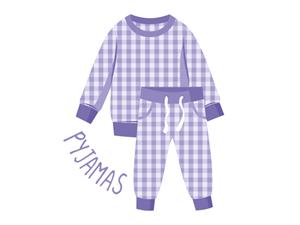PDF chapter test TRY NOW
Do they wear pyjamas
And do they watch TV?
And do they pick their noses
The same as you and me?
And do they watch TV?
And do they pick their noses
The same as you and me?
Explanation:
In the second stanza, the child asks if the teachers wear pyjamas, which can be seen as a continuation of his previous question, where he questions if teachers live in houses. Every individual is in his own comfort zone in his house. They wear their comfortable clothes which are most often loose fit. People focus more on style and fashion when they have to present themselves to the outer world. Teachers especially wear formal clothing in class as they have a huge impact on students. The child has seen his teachers only in professional attire, is surprised that they would wear pyjamas at all.

Pyjamas
He then goes on to question if teachers watch TV. Generally, television, radio and other media platforms are all forms of entertainment. The child wonders whether the same teachers who discuss highly intellectual topics and subject-related matters would watch light-hearted jokes or cartoons in the TV. He ponders about the possibility of his ideal teachers seeking relaxation from entertainment platforms like any ordinary person, and if he has time to do so.
Schools teach good habits and hygiene. Picking one's nose in public is not considered to be a hygienic habit, since it can spread germs to other people and cause diseases. But most children practice such habits prohibited in public like biting nails or picking nose, in private. Teachers scold students who pick their nose. But he wonders if the child in the teachers comes to life when they are in private if they has the ordinary flaws that every human being has.

Child picking nose
Meanings of difficult words:
| SI.no | Words | Meaning |
1 | Pyjamas | Loose clothes usually worn in house during bedtime |
2 | Comfort zone | The state of being relaxed |
3 | Formal | Used when in official situation |
4 | Professional attire | Not casual clothing like T-shirts or jeans |
5 | Intellectual | A person who can think logically and is well read |
6 | Ideal | Everything perfect |
7 | Hygiene | Practices to maintain cleanliness and good health |
8 | Prohibited | Not allowed to |
9 | Flaws | Mistakes or imperfections |
Reference:
National Council of Educational Research and Training (2006). Honeysuckle. Where Do All the Teachers Go? - Peter Dixon (pp.67- 68). Published at the Publication Division by the Secretary, National Council of Educational Research and Training, Sri Aurobindo Marg, New Delhi
